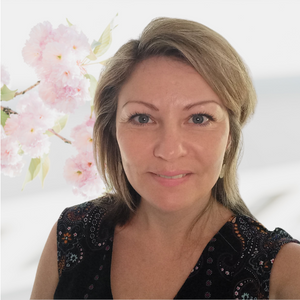Most people struggle with lack of confidence in a certain area of life, or a few areas. When we lack confidence, we basically tell ourselves we do not trust in our abilities to do something or cope with a challenge. This belief then informs our actions, and we may then not take opportunities to learn that ability or coping skill we need or desire.
As kids, we seek opportunities to try things, because kids are curious. But when we fall, fail, hurt ourselves, or get a negative feedback or punishment from our carers, we may not want to try that thing again. We may then come to a conclusion that “it is risky and dangerous” or “I am not good at it” and stop trying. We then may hold on to this belief for many years. This is the source of our lack of confidence now: past attempts that did not go well.
So instead, lets try a different approach.
Acknowledge the Past but Focus on Present
We always want to understand and acknowledge our past challenges, obstacles and traumas. More severe cases may need specialist guidance and intervention to help with processing and healing from past traumas. We always want to honour our past experiences, problems and the coping mechanisms which were available to us at that point (even if these coping mechanisms were not most helpful or positive). We acknowledge that we did the best that we could with the tools that we had. We use self-compassion and avoid judging ourselves in any way.
Then as a second step, we focus on our present moment reality, our life now, and decide what areas of life we wished we were more confident in, what is it we want more of, less of or to be better at. This leads us to next step.
Be Honest
To create a significant change in life, one must be very honest with oneself. We must face our areas of weakness, our most limiting beliefs about ourselves, the ways we sabotage ourselves, the ways we lie to ourselves. We all do that, that is very human. We do it because we lack awareness, we lack guidance, coping tools or safe environment to do so. Therefore, a right time, safe environment and right support may be needed to help one be more honest with oneself, to be able to take responsibility for one’s actions and choices, starting now.
Start Small
Now that you are clearer about what it is you want to be better at and more confident in, you focus on the ‘how’. And the ‘how’ is the smallest step you can take in the right direction. You need to break the big goal into smallest units, then act on it. So, if you want to be more confident in your communication with people, you may start with practicing to maintain a two-second eye contact with your barista when you get your coffee in the morning, or to say hello to a neighbour, then build on that gradually. Taking small actions like these will help manage the fears, past insecurities and change the old belief that says “I can not/I am not good at/it is dangerous to…” into “it is not that bad/ I can give it a go/ I possibly could…”.
Repeat!
Taking small steps will create a powerful and important shift that will make it easier trying again. Here is the key: TRY AGAIN, and again…and again! It takes time and repetition to create a new neural pathway in your brain (i.e new behaviour). So keep at it. Remind yourself why you are doing the new behaviour, link it to your bigger goals/wishes/meaningful life intentions. The fear will shrink and the new behaviour/skill/ability will start developing. After practicing it long enough, it will become more natural and a new belief will settle in “I can do it/I am pretty good at/I am capable of…”. Here is your confidence, gradually created by clarity, honesty and repetition.
Wanting to improve our confidence may be a strong statement that we are taking responsibility and committing to ourselves, our well-being, a desire for living a bigger life that has meaning, self-compassion and self-care.
 Author: Ilana Gorovoy, B.Arts (Psych), B. Arts (Hons.)(Psychology), MPsych (Couns.)
Author: Ilana Gorovoy, B.Arts (Psych), B. Arts (Hons.)(Psychology), MPsych (Couns.)
With a Master’s in Counselling, Brisbane Psychologist Ilana Gorovoy draws on therapeutic approaches such as Cognitive Behavioural Therapy, Existential and Strengths-based approaches, Person-Centred and Positive Psychology, to assist her clients to become conscious of their strengths and difficulties, design and reach their goals, live a life of meaning and purpose, and reach their full potential.
To make an appointment with Brisbane Psychologist Ilana Gorovoy, try Online Booking Alternatively, you can call Vision Psychology (Wishart) on (07) 3088 5422.